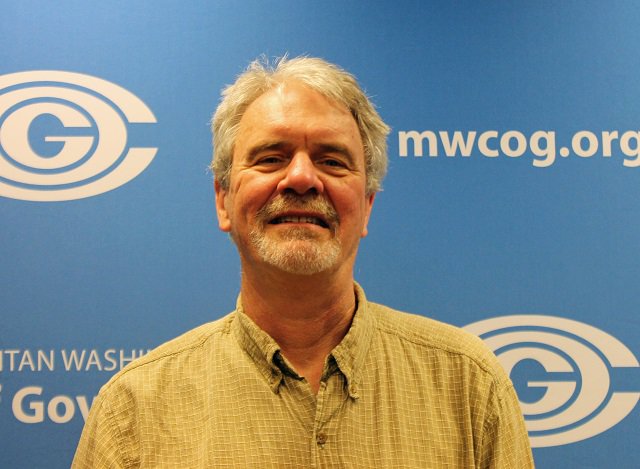
For nearly 20 years, Principal Environmental Planner Karl Berger has worked with DC Water and WSSC staff to support the Blue Plains Advanced Wastewater Treatment Plant—the largest plant of its kind—to safely manage their biosolids, the residuals from wastewater treatment. After studying agriculture at Penn State and a decade spent as an agricultural reporter, Berger joined the COG team in 1992. He first got on board with the Blue Plains project when concerns were raised about the water quality impact of nitrogen and phosphorus in biosolids applied to farmland.
Wastewater plants in the region, like Blue Plains, improve water quality in local waters, the Potomac River, and the Chesapeake Bay. Biosolids are a byproduct of this cleaning process. Managing biosolids in an environmentally sound, cost-efficient manner is crucial to the region’s ability to protect human health, improve water quality, protect the environment, and be sustainable.
“In a truly long-term approach to sustainability, we need to recycle this material as opposed to landfilling or burning it,” said Berger.
The carbon in biosolids can be used to generate energy—as in the new solids handling process at Blue Plains where digesters can generate enough methane energy to power a third of the plant while freeing up electricity on the local grid. This helps meet the regional goal to reduce energy at wastewater treatment plants. At the same time, the biosolids from the digesters can make higher quality end products that can be used in local agriculture.
Berger says he has appreciated the chance to apply cutting-edge, scientific findings to the management of biosolids, thus helping to demonstrate the benefits of this sustainable practice. For example, recent COG-sponsored research at Virginia Tech University has shown that the organic matter in biosolids serves as a source for beneficial plant hormones that boost plant growth and protect the plant against the stresses caused by drought.
Berger’s work more than a decade ago to convene the managers of DC Water and the managers of Virginia treatment plants to author an amicus brief in a case before the Virginia Supreme Court resulted in the creation of the Virginia Association of Municipal Wastewater Agencies’ Biosolids Workgroup. This ongoing collaboration, which includes many COG members, addresses regulatory, legislative, and legal issues affecting biosolids in Virginia. With the backing of DC Water staff, he also worked to set up the organizational and financial arrangement for the Virginia Biosolids Council, which handles outreach and communication to the general public in areas where biosolids are applied.
“It is a true partnership at the mega-regional level and Karl’s work has helped make it possible,” said Tanya Spano, Chief, Regional Water Quality Management. “Along with his leadership in the areas of regional stormwater management and water quality analysis, Karl’s biosolids work ensures that COG’s members have the best technical information to support their programs.”